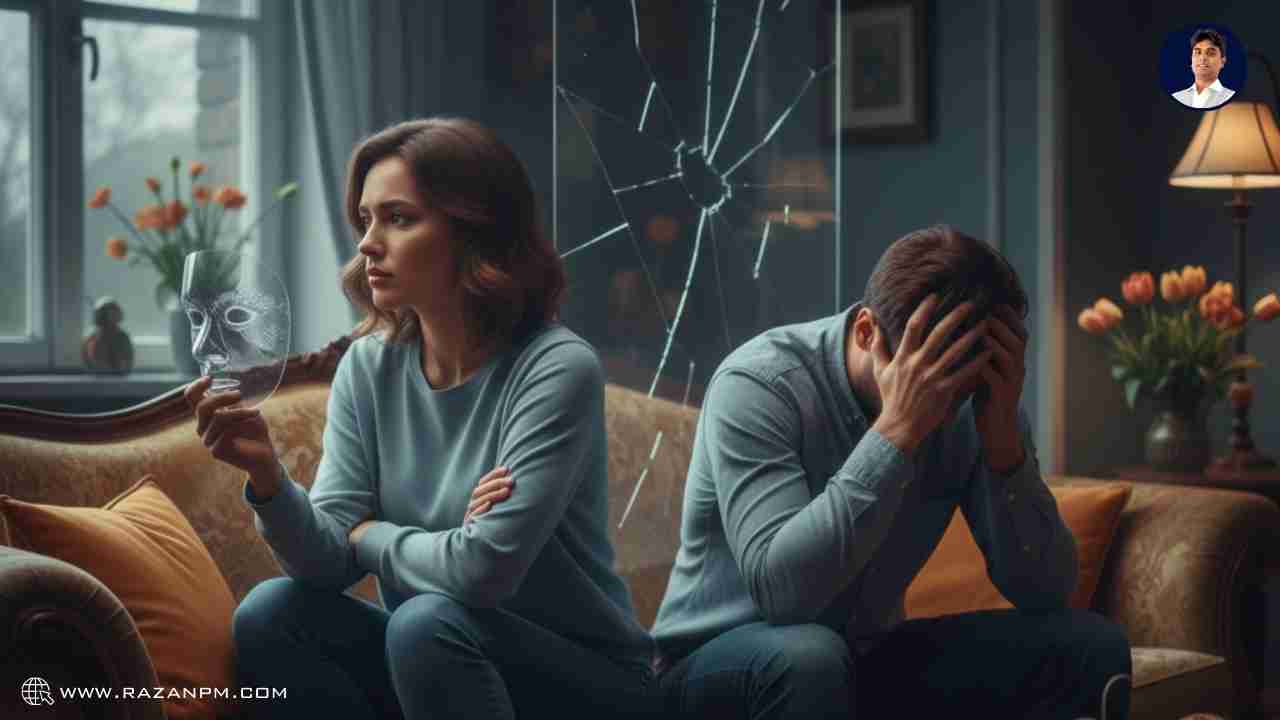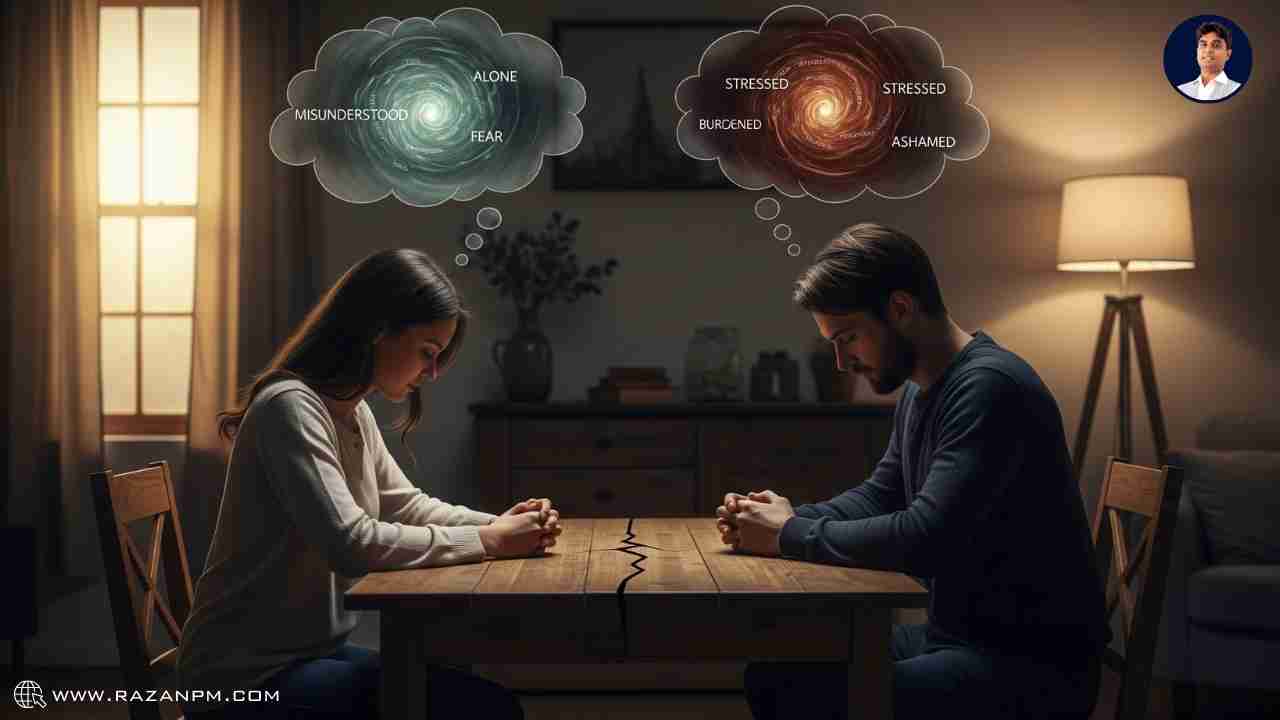Your partner leaves the wet towel on the bed. You think: “They don’t care about me at all!”
Next thing you know, your brain has already written a three-season Netflix drama: “If they don’t care about towels, maybe they don’t care about me… and maybe this relationship is doomed.”
Sounds funny, right? But this is exactly how small things spiral into silence, hidden feelings, and emotional pain.
Why many couples feel judged for not having kids

Couples often hide their true feelings, not because they don’t want connection, but because they fear conflict, rejection, or judgment. Instead of saying, “That hurt me,” one partner says, “It’s fine.” Instead of sharing love openly, they hold back, waiting for the “right moment” that never comes.
The silence feels safe for a while, but it builds walls. Over time, those walls become heavier than any argument could ever be.
Why many couples feel judged for not having kids
If you’ve ever thought…
…then you’ve already experienced the emotional weight of hidden feelings.
What starts as protection quickly becomes isolation. And isolation in relationships is one of the strongest predictors of dissatisfaction and eventual breakdown.
2AM emails and the dark side of Gen Z work culture

Psychologists often call this emotional suppression, and while it seems like a short-term fix, it has long-term costs.
The truth about Gen Z relationship drama
Both DSM-5 (Diagnostic and Statistical Manual of Mental Disorders) and ICD-11 (International Classification of Diseases) highlight the role of emotional dysregulation and avoidance in mental health difficulties.
In simple terms: holding back feelings doesn’t just hurt your relationship, it can impact your mental and physical health too.
Why sadness feels addictive for Gen Z

Studies from the University of Texas and Stanford University show that couples who avoid expressing emotions report:
Another study found that couples who engage in “constructive emotional disclosure” (sharing feelings respectfully) show increased oxytocin release - the bonding hormone that deepens connection.
So yes, science says: silence kills connection, but openness heals.
Why sadness feels addictive for Gen Z
I once worked with a couple who hadn’t truly spoken about their feelings in years. They weren’t fighting, but they also weren’t connecting. The wife quietly cried at night, believing her husband didn’t love her anymore. The husband stayed quiet, thinking silence kept her happy.
One day, the wife finally whispered: “I’m scared I don’t matter to you.” For the first time, the husband admitted: “I’ve been afraid to say the wrong thing and lose you.”
That single exchange broke years of silence. They both realized the problem wasn’t lack of love — it was the fear of expressing it.
Why sadness feels addictive for Gen Z

Here’s where the real change begins. Not with grand speeches, but with simple shifts in how we think and speak.
Is marriage over for Gen Z – the untold story
Instead of telling yourself, “If I share this, it’ll start a fight,” shift the thought to:
Our brains respond to the stories we tell. Change the story, change the outcome.
Instead of asking, “Are you okay?” (which often gets a “fine”), try:
This gently digs deeper without sounding accusatory.
Start with small truths before tackling big ones. For example:
This builds a safe space for emotional honesty, so that when bigger issues arise, honesty feels natural.
Instead of, “You never listen to me,” say, “I feel unheard when I share something important.”
This shifts the focus from blame to experience.
Set aside 10 minutes a day to ask:
Regular practice reduces the fear of sudden “big talks.”
Burned out and lost: the Gen Z struggle
These approaches might sound simple, but they rewire the way your brain processes emotional exchanges. Instead of linking vulnerability with danger, your mind starts associating honesty with connection, relief, and safety.
And when both partners feel safe enough to share, the cycle of silence is finally broken.
The dark side of Gen Z marriage
Hiding feelings may seem like self-protection, but in truth, it’s a slow erosion of love. The courage to speak openly - even clumsily - is what builds intimacy that lasts.
Next time you feel like swallowing your words, remember: your silence might feel safe, but your honesty is the bridge that keeps love alive.
👉Begin Your Journey with a 1 on 1 Consultation
👉Begin Your Journey with a 1 on 1 Consultation
